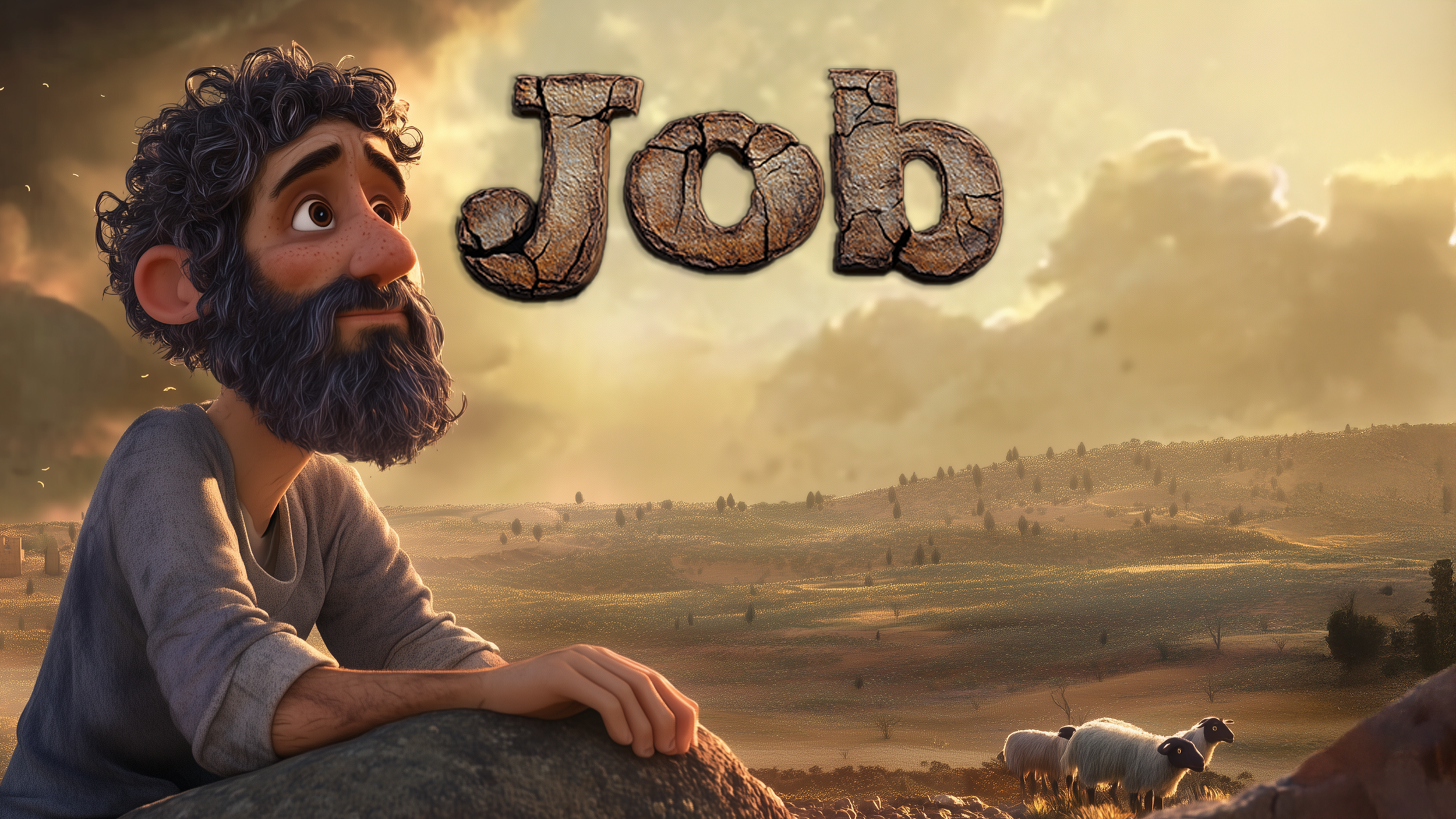The Lord Restored
READ
The end of Job's story reads like a fairy tale. After chapters of suffering, questioning, and wrestling with God, everything is suddenly restored. Job receives twice as much as he had before - more livestock, more wealth, more children. It's the kind of ending that makes us want to believe that if we just have enough faith, our stories will end the same way. But that misses the deeper truth of what God is revealing about His character and His ways.
Let’s take a moment to read Job 42:10-12:
After Job had prayed for his friends, the Lord restored his fortunes and gave him twice as much as he had before. All his brothers and sisters and everyone who had known him before came and ate with him in his house. They comforted and consoled him over all the trouble the Lord had brought on him,and each one gave him a piece of silver and a gold ring. The Lord blessed the latter part of Job’s life more than the former part. He had fourteen thousand sheep, six thousand camels, a thousand yoke of oxen and a thousand donkeys.
REFLECT
First, notice the timing of Job's restoration. It comes not after Job finally understands why he suffered, not after he stops asking questions, and not after he proves his worthiness. The restoration comes "after Job had prayed for his friends." The very people who had accused him, judged him, and misrepresented God to him - these are the people Job intercedes for. The restoration flows from an act of grace and forgiveness.
This detail reveals something profound about Job's character development through suffering. The man who lost everything and had every right to be bitter chooses instead to bless those who hurt him. This isn't the same Job who began the story. Suffering has refined him, stripped away everything non-essential, and revealed the gold of his character. He's learned to love like God loves - extending grace to those who don't deserve it.
The doubling of Job's possessions is significant, but not in the way we might think. It's not a reward for good behavior or a payment for suffering endured. Instead, it's a demonstration of God's generous heart and His desire to bless His children. The restoration doesn't erase the pain Job experienced, but it does show that God's plans for His people ultimately lead to flourishing, not just survival.
However, we must be careful not to turn Job's restoration into a formula. The text doesn't say that everyone who suffers faithfully will receive double restoration in this life. Job's story is unique, and his restoration serves a specific purpose in God's larger narrative. The real message isn't that faithfulness guarantees material blessing, but that God's heart toward His people is always restoration, even when the timing and form of that restoration remain mysterious.
The phrase "the Lord blessed the latter part of Job's life more than the former part" suggests that Job's greatest blessings came not despite his suffering but because of what he learned through it. The man who received the doubled possessions was not the same man who had lost them. He had gained something far more valuable than wealth - he had gained a deeper understanding of God's character and a more mature faith.
Job's restoration also demonstrates that God sees our pain and doesn't waste our suffering. The chapters of anguish weren't meaningless; they were preparation for a greater blessing. Job's story shows us that God is not indifferent to our struggles but is actively working to bring beauty from ashes, to transform our pain into purpose.The fact that Job's restoration comes in community is also significant. He doesn't receive his blessing in isolation but surrounded by family and friends who celebrate with him. This reminds us that God's restoration often comes through relationships, through the love and support of others who share in our joy and help us process our blessings.
Perhaps most importantly, Job's restoration points us toward the ultimate restoration that awaits all of God's people. While not everyone will experience Job's kind of earthly restoration, everyone who trusts in God can look forward to the final restoration when all things are made new. Job's doubled blessing is a foretaste of the eternal blessing that awaits those who remain faithful through suffering.
The story concludes with Job living 140 more years, seeing his children and grandchildren to the fourth generation. This longevity isn't just about quantity of life but quality of life. Job's restored years are rich with purpose, relationship, and joy. He has learned to treasure what truly matters and to hold lightly to what doesn't. For us, Job's restoration provides both hope and perspective. It assures us that God's heart toward us is always restoration, even when we can't see it. It reminds us that our present struggles are not the end of our story. And it challenges us to trust God's timing and methods, knowing that His plans for us are ultimately good.
RESPOND
Take a moment to process what God might be leading you to do in light of what you read.
How does Job's prayer for his friends before his restoration challenge your response to those who have hurt you?
How can Job's restoration give you hope for your own areas of loss or brokenness?
REST
Take a moment to rest in God’s presence and consider one thing you can take away from your time reading, then close your devotional experience by praying:
Gracious God, thank You that Your heart toward me is always restoration, even when I can't see it. Help me to trust Your timing and Your methods, knowing that Your plans for me are good. Give me grace to forgive those who have hurt me and to pray for their blessing. May I learn to treasure what truly matters and to hold lightly to what doesn't, trusting that You are working all things together for my good. Amen.

